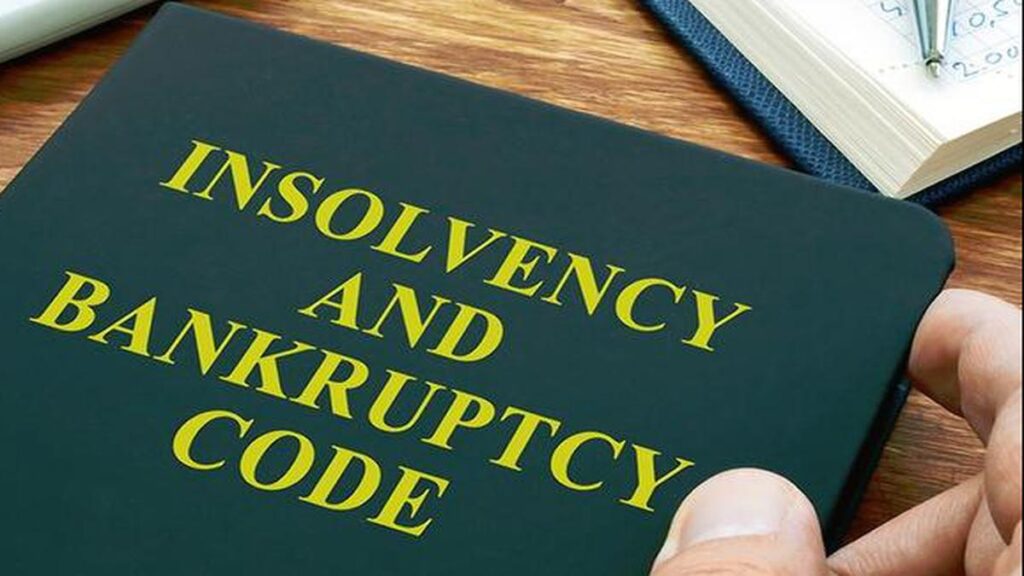Legal Protections for Insolvent Businesses: How Insolvency Lawyers Can Help
Insolvency is a challenging situation that many businesses may face at some point in their operations. When a business becomes insolvent, it means that it is unable to pay its debts as they become due.
This article will provide an overview of insolvency, explain the legal rights available to insolvent businesses, delve into the role of best insolvency lawyers, discuss the process of insolvency proceedings, and explore the impact of insolvency on stakeholders.
Understanding Insolvency: A Brief Overview
Insolvency refers to a financial state where a business is unable to meet its financial obligations. This can occur due to various factors, such as declining sales, high operating costs, or mismanagement of funds. It’s crucial for business owners to understand the meaning of insolvency to make informed decisions.
When a business faces insolvency, it can be a challenging and stressful time for all involved. Not only does insolvency impact the financial health of the business, but it can also have far-reaching consequences on employees, suppliers, and other stakeholders. Seeking professional advice and exploring all available options is essential in navigating through insolvency. Learn more about proactive measures from legal experts.
The Meaning of Insolvency
Insolvency occurs when a business’s liabilities exceed its assets, resulting in an inability to pay debts. The business may have insufficient cash flow to meet its obligations, leading to financial distress. Recognizing the signs of insolvency is crucial for business owners to take appropriate action.
Furthermore, insolvency can be a complex legal and financial matter that requires a thorough understanding of the relevant laws and regulations. It’s important for business owners to seek guidance from insolvency professionals who can provide expert advice on restructuring, liquidation, or other potential solutions to address the insolvency situation.
The Different Types of Insolvency
Insolvency can manifest in different forms, including cash flow insolvency and balance sheet insolvency. Cash flow insolvency means that a business is unable to pay its debts as they become due, even though its balance sheet shows positive net assets. In contrast, balance sheet insolvent businesses have liabilities that exceed their assets on the balance sheet.
Understanding the nuances between these types of insolvency is crucial in determining the appropriate course of action for a business in financial distress. By identifying the specific type of insolvency affecting the business, owners can work towards implementing tailored strategies to address the underlying issues and work towards financial recovery.
The Legal Rights of Insolvent Businesses
Insolvency is a complex legal matter, and there are specific legal protections available to insolvent businesses. Understanding these rights can help businesses navigate through the challenging process of insolvency.
Insolvency can be a daunting and overwhelming experience for businesses, but it is essential to remember that there are legal safeguards in place to provide support and guidance during this difficult time. By being aware of these protections, businesses can make informed decisions and work towards a more stable financial future.
Automatic Stay Provision
One important legal protection for insolvent businesses is the automatic stay provision. When a business files for bankruptcy, the automatic stay prevents creditors from pursuing legal actions to collect debts. This gives the business an opportunity to reorganize and develop a repayment plan.
The automatic stay provision not only offers immediate relief to the business by halting collection efforts, but it also provides a sense of breathing room to assess the financial situation and strategize for the future. This legal safeguard serves as a crucial tool in the restructuring process, allowing businesses to focus on regaining stability without the constant pressure of creditor actions.
Reorganization Under Bankruptcy Law
Bankruptcy law provides options for insolvent businesses to reorganize their finances and operations. Chapter 11 bankruptcy, for example, allows businesses to continue operating while developing a plan to repay creditors. This legal protection allows businesses to have a chance at rehabilitation and potentially emerge from insolvency stronger than before.
Chapter 11 bankruptcy is a powerful tool that enables businesses to not only address their financial obligations but also to streamline operations and improve efficiency. By taking advantage of the reorganization opportunities provided under bankruptcy law, businesses can work towards a more sustainable and profitable future, paving the way for long-term success.

The Role of Insolvency Lawyers
Insolvency lawyers play a crucial role in assisting businesses facing financial distress. They provide essential legal advice and representation throughout the insolvency process, helping businesses make informed decisions and navigate complex legal procedures.
When a business is struggling financially, insolvency lawyers step in to offer their expertise and guidance. They analyze the financial situation of the business, assess the available options, and develop a strategic plan to address the insolvency issues. By working closely with the business owners and stakeholders, insolvency lawyers ensure that all legal requirements are met and that the best possible outcome is achieved.
Legal Advice and Representation
Insolvency lawyers are well-versed in the legal intricacies surrounding insolvency. They provide expert advice on the available options, such as bankruptcy or reorganization, and guide businesses through the necessary steps. Additionally, they represent the interests of the business in negotiations with creditors and other stakeholders.
Furthermore, insolvency lawyers play a key role in ensuring that the rights of the business are protected throughout the insolvency process. They review contracts, leases, and other agreements to determine the implications of insolvency and advise on the best course of action. By providing comprehensive legal representation, insolvency lawyers help businesses navigate the complexities of insolvency law with confidence.
Negotiating with Creditors
Insolvency lawyers have the expertise to negotiate with creditors on behalf of the business. They can help negotiate debt repayment terms, interest rates, and prioritize payments. Skilled negotiations can be crucial in maximizing the chances of successful debt restructuring and minimizing the impact on the business.
In addition to negotiating with creditors, insolvency lawyers also assist businesses in developing repayment plans and restructuring strategies. By leveraging their legal knowledge and negotiation skills, insolvency lawyers strive to reach agreements that are beneficial for both the business and its creditors. This collaborative approach is essential in achieving a successful resolution to the insolvency proceedings.
The Process of Insolvency Proceedings
Insolvency proceedings involve several steps and legal requirements. Understanding the process can help businesses navigate through the complex legal landscape more effectively.
Insolvency proceedings can be a daunting and challenging time for businesses facing financial difficulties. It is crucial for companies to seek professional advice and guidance to ensure they comply with all legal obligations and make informed decisions throughout the process.
Filing for Bankruptcy
When a business determines that bankruptcy is the most suitable course of action, it must file a bankruptcy petition with the appropriate court. The bankruptcy filing initiates the insolvency proceedings, and the court oversees the process to ensure fairness and adherence to the law.
It is essential for businesses to provide accurate and comprehensive financial information when filing for bankruptcy. This information helps the court assess the company’s financial situation and determine the best course of action for all parties involved.
The Role of the Court in Insolvency Proceedings
Throughout the insolvency proceedings, the court plays a vital role in overseeing the process. The court reviews and approves the business’s reorganization plan, ensures compliance with legal requirements, and supervises the distribution of assets among creditors. Its involvement provides transparency and fairness throughout the process.
Court hearings and proceedings can be complex and time-consuming. It is important for businesses to work closely with their legal representatives to navigate these processes effectively and advocate for their interests in court.

The Impact of Insolvency on Stakeholders
Insolvency can have far-reaching consequences, affecting various stakeholders associated with the business. It is essential to understand how different parties are affected to mitigate potential negative impacts.
Effects on Employees and Suppliers
Insolvency often leads to significant disruptions for employees and suppliers. Employees may face job losses or uncertainty regarding their employment. Suppliers may experience delays in payment or even non-payment, impacting their own financial stability. Insolvency lawyers can help navigate these challenges and protect the interests of both employees and suppliers.
For employees, the impact of insolvency can be devastating. In addition to the loss of income and job security, they may also face difficulties in finding new employment, especially if the industry they were working in is experiencing a downturn. The emotional toll of insolvency cannot be overlooked, as it can lead to stress, anxiety, and even depression. Insolvency lawyers can provide support and guidance to employees, helping them understand their rights and explore options for compensation or reemployment.
Suppliers, on the other hand, may find themselves in a precarious position when a business becomes insolvent. Not only do they face the possibility of not being paid for their goods or services, but they may also have to deal with the loss of a significant customer. This can have a ripple effect on their own financial stability, potentially leading to layoffs or downsizing. Insolvency lawyers can assist suppliers in recovering outstanding debts, negotiating payment plans, or exploring alternative business opportunities to minimize the impact of the insolvency.
Consequences for Creditors and Investors
Creditors and investors also face consequences when a business becomes insolvent. Depending on the circumstances, creditors may receive partial or no repayment of their debts. Investors may lose their investments in the business. Insolvency lawyers can help creditors and investors assess their rights and explore options for recovery.
Creditors, such as banks or other lending institutions, may find themselves in a difficult position when a business they have extended credit to becomes insolvent. They may have to write off a significant portion of the debt, resulting in financial losses. Insolvency lawyers can work with creditors to analyze the financial situation of the insolvent business, identify any potential assets that can be liquidated to repay the debt, and negotiate repayment plans or settlements.
Investors, including shareholders or venture capitalists, may also suffer significant losses when a business fails. Their investments may become worthless, and they may have little recourse for recovering their funds. Insolvency lawyers can assist investors in exploring legal avenues to recover their investments, such as pursuing claims against directors or officers for mismanagement or fraudulent activities.
In Conclusion
Insolvency is a complex and challenging situation that requires careful navigation of legal processes and protections. Insolvency lawyers play a crucial role in providing guidance, legal representation, and negotiating on behalf of insolvent businesses. Understanding the rights and options available can help businesses protect their interests and emerge from insolvency with a solid foundation for the future.
It is important for all stakeholders to seek professional advice and support during insolvency proceedings. By working together and understanding the potential impact on each party involved, it is possible to mitigate the negative consequences and pave the way for a more stable and successful future.


